How Much Does A Social Media Blackout Help?
How Much Does A Social Media Blackout Help?
Jordan Burroughs is going silent on social media, how much will it help his performance at the 2017 U.S. Open?
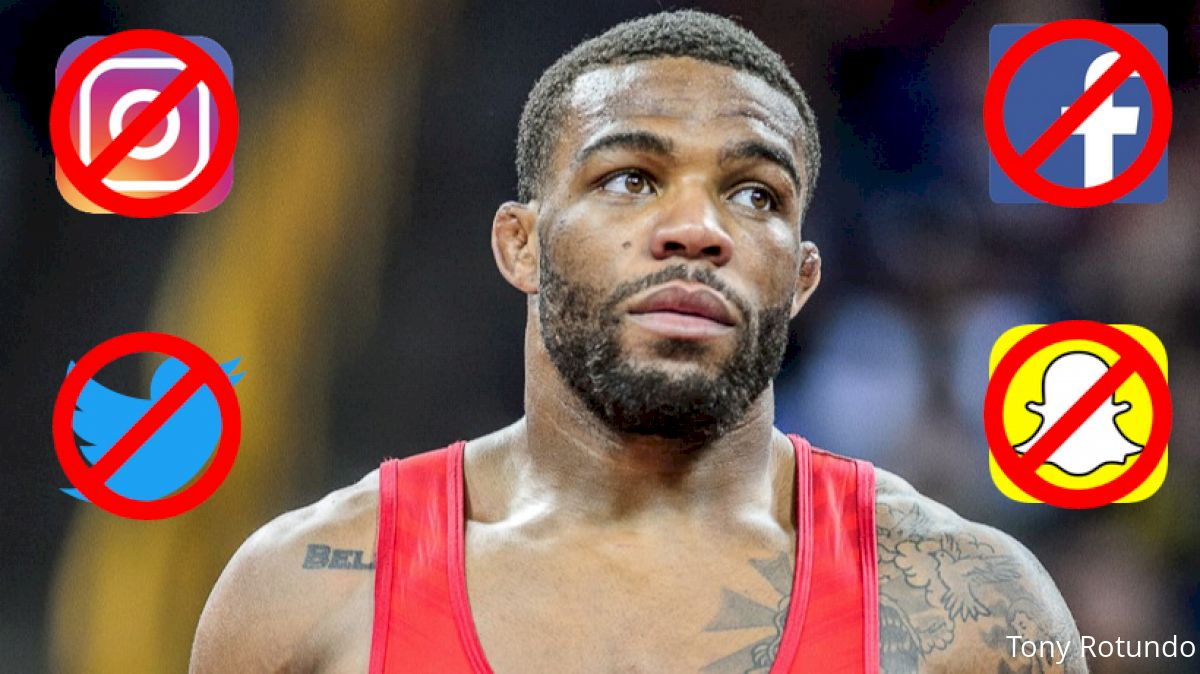
Unless you're Thomas Gilman, social media plays a huge part of your day-to-day life. Millions upon millions of tweets, posts, likes and snaps are sent everyday.
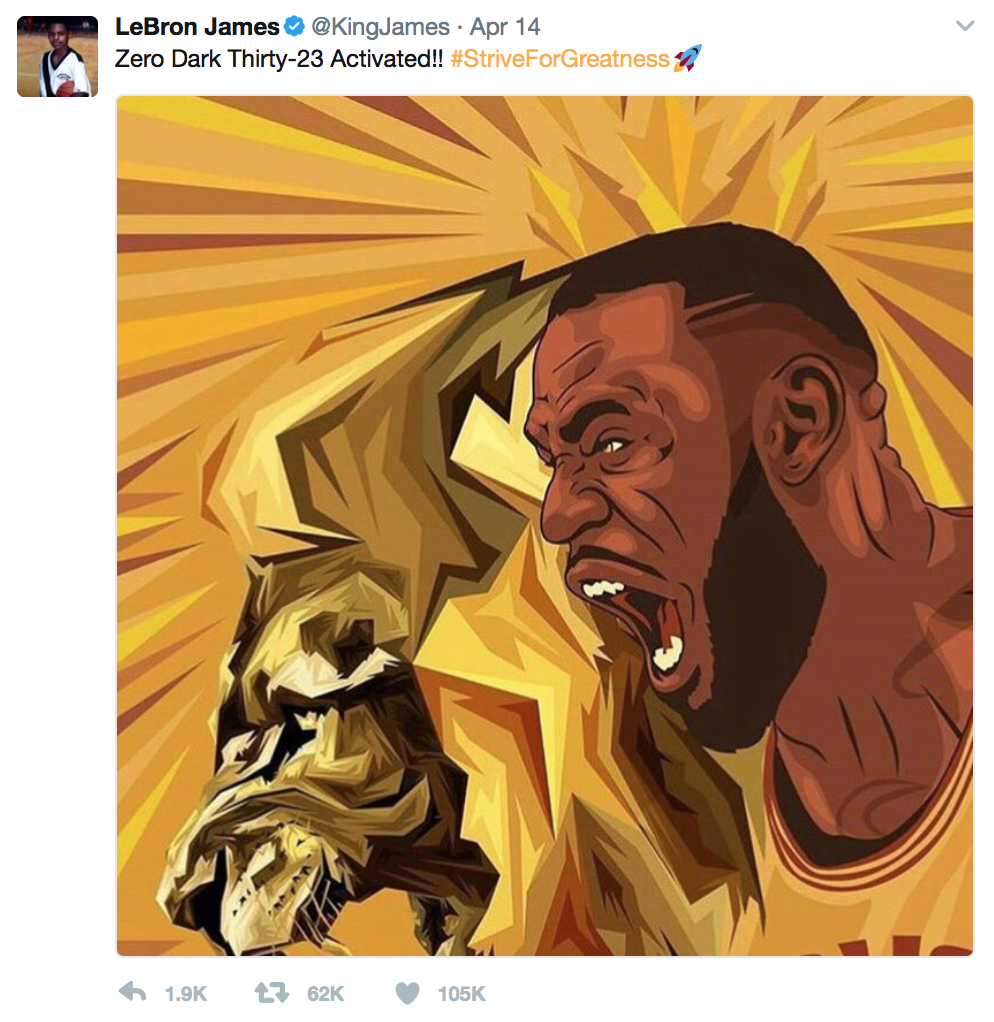 We get to follow and interact with our friends, family, and favorite celebrities from anywhere in the world just by tapping a touchscreen.
We get to follow and interact with our friends, family, and favorite celebrities from anywhere in the world just by tapping a touchscreen.
However, some of our favorite celebs take a break from social media at crucial times to focus in on a certain goal or task in order stay the course.
LeBron James, who becomes a social media ghost during the NBA playoffs, calls it "zero dark 30-23." (see picture to right)
But for us normal folks it's really just a break from social media, aka a social media blackout.
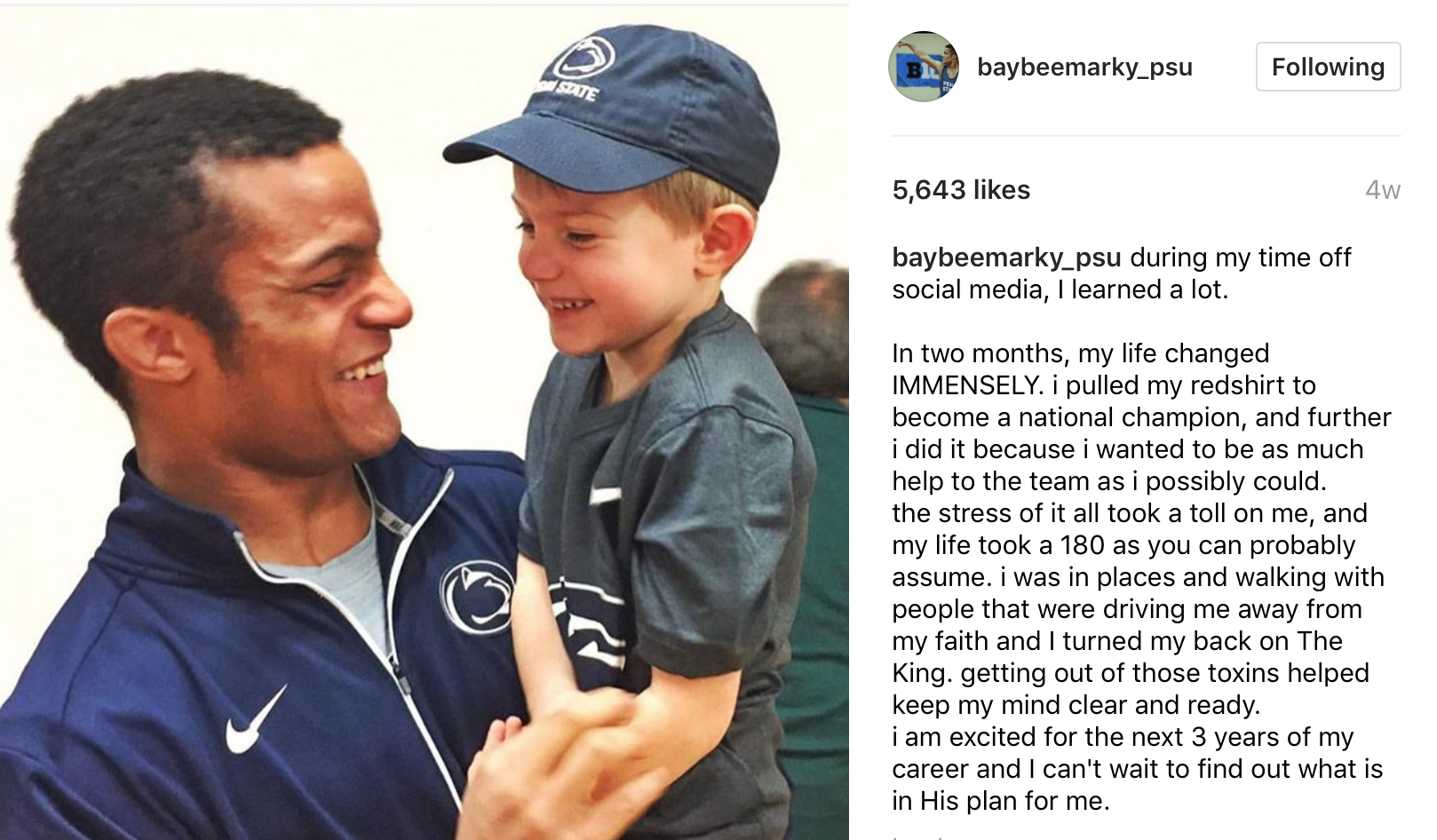
The Penn State wrestlers did the same before the NCAA tournament as well, and freshman national champion Mark Hall reflected on his time off social media in his first post after winning his title. (See picture to left.)
The latest to join the cause for a clearer mind is multiple-time world champ Jordan Burroughs.
He let his fans know via Twitter on Monday morning that since he will be returning to the mat at the 2017 U.S. Open in Las Vegas next weekend, that he "will be away from all social media till [after the tournament]."
As you can see, the social media blackout has a pretty good track record: Hall: 2017 NCAA champion; James and the Cleveland Cavaliers: 2016 NBA champions; Burroughs at the 2017 U.S Open: TBD.
But honestly, does eliminating social media really result in a clearer mind?
"People normally climb in bed and rather than falling asleep they spend 45 minutes to an hour on social media," Spencer said. "That time spent on social media is taking away from the sleep an athlete could and should be getting."
Obviously, social media affects different age groups more significantly than others.
"It's more intense for professional athletes," Spencer said. "Professional athletes are in the spotlight more and get more attention from all angles, both positive and negative, so in a sense they engage with social media more."
On the flip side, there are the people who ask, "Why change your routine for a specific event?" Instead, just continue to do everything the same way as you normally would, because messing up your routine can cause a misstep in your performance as well.
To that, Dr. Spencer responded with the following:
"Obviously, that argument can be made; however, less distractions coming in is always a positive. It's like putting your mind on a diet, and like I always say with the athletes I work with, a clearer mind equals a better performance."
All in all, limiting distractions going into an event is clearly a good thing. And going to extremes such as eliminating social media so that you can get dialed in has a direct correlation to performing better.
 We get to follow and interact with our friends, family, and favorite celebrities from anywhere in the world just by tapping a touchscreen.
We get to follow and interact with our friends, family, and favorite celebrities from anywhere in the world just by tapping a touchscreen.However, some of our favorite celebs take a break from social media at crucial times to focus in on a certain goal or task in order stay the course.
LeBron James, who becomes a social media ghost during the NBA playoffs, calls it "zero dark 30-23." (see picture to right)
But for us normal folks it's really just a break from social media, aka a social media blackout.

The Penn State wrestlers did the same before the NCAA tournament as well, and freshman national champion Mark Hall reflected on his time off social media in his first post after winning his title. (See picture to left.)
The latest to join the cause for a clearer mind is multiple-time world champ Jordan Burroughs.
He let his fans know via Twitter on Monday morning that since he will be returning to the mat at the 2017 U.S. Open in Las Vegas next weekend, that he "will be away from all social media till [after the tournament]."
I'm competing at the US Open on April 28-29th. I'll be away from all social media till then to get completely dialed. See ya April 30th! pic.twitter.com/gI1IFvN49i
— Jordan Burroughs (@alliseeisgold) April 17, 2017
As you can see, the social media blackout has a pretty good track record: Hall: 2017 NCAA champion; James and the Cleveland Cavaliers: 2016 NBA champions; Burroughs at the 2017 U.S Open: TBD.
But honestly, does eliminating social media really result in a clearer mind?
Definitely," said sports psychologist Dr. Jarrod Spencer, the founder and CEO of Mind of the Athlete. "It's the biggest distraction for athletes today. Eliminating social media has a significant benefit on an athlete's performance. Athletes today have a hard time focusing because of the addiction to social media that plagues our society. But the biggest thing that it affects is their sleep.According to Spencer, athletes get on average 6.48 hours of sleep per night. And as most coaches tell their athletes, in order to compete at a high level, sleep (or rest) has to be their best friend outside of training.
"People normally climb in bed and rather than falling asleep they spend 45 minutes to an hour on social media," Spencer said. "That time spent on social media is taking away from the sleep an athlete could and should be getting."
Obviously, social media affects different age groups more significantly than others.
"It's more intense for professional athletes," Spencer said. "Professional athletes are in the spotlight more and get more attention from all angles, both positive and negative, so in a sense they engage with social media more."
On the flip side, there are the people who ask, "Why change your routine for a specific event?" Instead, just continue to do everything the same way as you normally would, because messing up your routine can cause a misstep in your performance as well.
To that, Dr. Spencer responded with the following:
"Obviously, that argument can be made; however, less distractions coming in is always a positive. It's like putting your mind on a diet, and like I always say with the athletes I work with, a clearer mind equals a better performance."
All in all, limiting distractions going into an event is clearly a good thing. And going to extremes such as eliminating social media so that you can get dialed in has a direct correlation to performing better.
Related Content
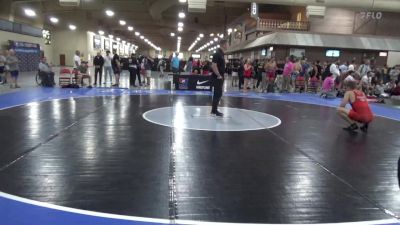 Replay: Mat 11 - 2024 US Open Wrestling Championships | Apr 24 @ 4 PM
Replay: Mat 11 - 2024 US Open Wrestling Championships | Apr 24 @ 4 PMApr 25, 2024
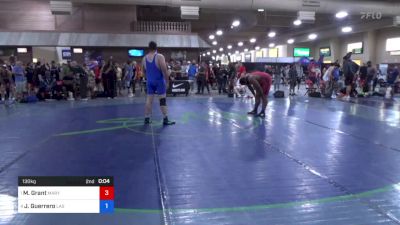 Replay: Mat 13 - 2024 US Open Wrestling Championships | Apr 24 @ 4 PM
Replay: Mat 13 - 2024 US Open Wrestling Championships | Apr 24 @ 4 PMApr 25, 2024
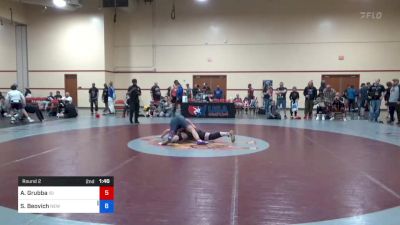 Replay: Mat 15 - 2024 US Open Wrestling Championships | Apr 24 @ 4 PM
Replay: Mat 15 - 2024 US Open Wrestling Championships | Apr 24 @ 4 PMApr 25, 2024
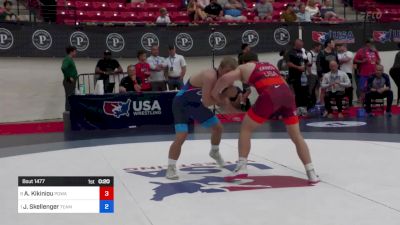 Replay: Mat 1 - 2024 US Open Wrestling Championships | Apr 24 @ 4 PM
Replay: Mat 1 - 2024 US Open Wrestling Championships | Apr 24 @ 4 PMApr 25, 2024
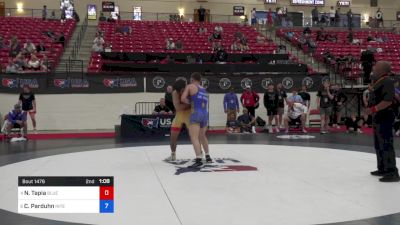 Replay: Mat 3 - 2024 US Open Wrestling Championships | Apr 24 @ 4 PM
Replay: Mat 3 - 2024 US Open Wrestling Championships | Apr 24 @ 4 PMApr 25, 2024
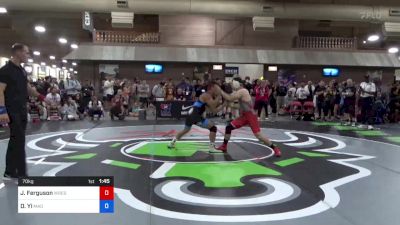 Replay: Mat 12 - 2024 US Open Wrestling Championships | Apr 24 @ 4 PM
Replay: Mat 12 - 2024 US Open Wrestling Championships | Apr 24 @ 4 PMApr 25, 2024
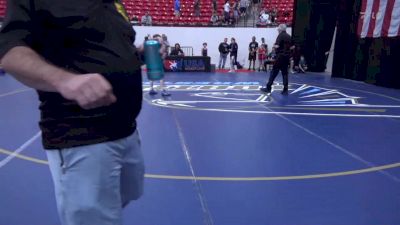 Replay: Mat 9 - 2024 US Open Wrestling Championships | Apr 24 @ 4 PM
Replay: Mat 9 - 2024 US Open Wrestling Championships | Apr 24 @ 4 PMApr 25, 2024
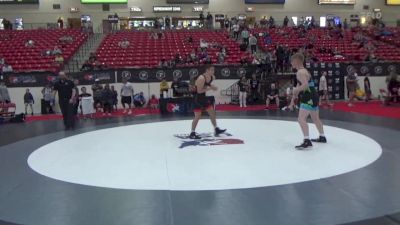 Replay: Mat 6 - 2024 US Open Wrestling Championships | Apr 24 @ 4 PM
Replay: Mat 6 - 2024 US Open Wrestling Championships | Apr 24 @ 4 PMApr 25, 2024
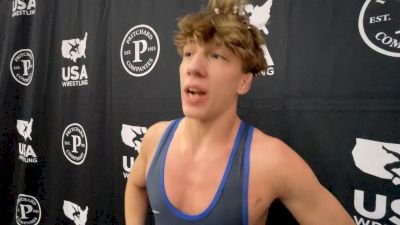 Otto Black Loves Big Moves
Otto Black Loves Big MovesApr 25, 2024